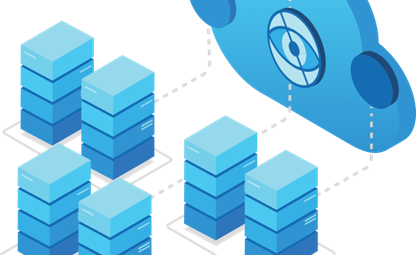10 Jan 2019
Artificial Intelligence is Becoming Smarter and More Creative

Deep learning is a type of "neural network" that mimics the vast interconnected structure of the human brain. By expending vast amounts of computing power, deep learning can gains new insights through representation learning (which is able to identify features from raw data) rather than task-specific algorithms. In the modern economy, deep learning has the potential to create trillions of dollars of value across multiple industries. The possibilities are nearly endless, from the prevention of financial fraud to predictive maintenance. When used in conjunction with machine vision technology, deep learning could transform the way goods are made on the factory floor; it enables machines to carry out functions such as automatic inspections and robot guidance that aren't explicitly defined or facilitated by the code. Some deep learning programs are so sophisticated that they can recognise defects and abnormalities even in poor lighting conditions or at oblique angles.
As deep learning develops as a technology, how might it change in the future? To answer this question, you first need to understand the current state of the technology. The McKinsey Global Institute recently analysed more than 400 use cases across a wide array of industries and business functions to achieve a more accurate picture of AI's current limitations. They reported their findings in April 2018.
McKinsey discovered a few important issue. The first issue is the sheer amount of data required for deep learning to reach its true potential. The typical supervised deep learning algorithm only requires about 5,000 labelled items to meet acceptable standards, but it requires at least 10 million labelled items to reach true parity with human performance. The second issue McKinsey found is that the AI models frequently needed to be retrained to match changing conditions. In a third of use cases they studied retraining was required monthly and in a quarter of use cases it was required daily.
For deep learning to reach its true potential, it will need to be smarter and more curious. That is what several research teams are working hard to achieve. A new technique called reinforcement learning that focuses on guiding AI behaviour based on a system of punishments and rewards has proven to be effective. By narrowly establishing parameters to reward "good" behaviour, the reinforcement AI can learn faster from its own experiences, which may dramatically reduce the number of cases required to train an AI. DeepMind's AlphaGo software, which beat professional Go player Lee Sedol in a five-game match in 2016, was able to master the complex rules of the game partially after being exposed to reinforcement learning.
Deep learning technology is also becoming more creative and curious, which could help with situations in which the parameters are not well-defined. For example, as The Economist reports, one deep learning system developed by Pierre-Yves Oudeyer and his team at the National Institute for Research in Computer Science and Automation in France uses a technique called prediction error to search for data that deviated significantly from its expectations. If the AI discovers a unique source of data, then it would attempt to improve its prediction rate. If its predictions failed, then it would grow "bored" and search for new sources of data.
Despite these advancements, however, new technology alone will not unlock the full value of artificial intelligence. The demands of the modern economy will likely necessitate a full digital strategy to properly implement deep learning technology. Businesses will need to establish some kind of organisational system that can collect and extract value from data in an accurate and efficient manner. Otherwise, the data may go to waste, even if the technology is mature.
folio1 provides the technology and expertise to help your business map out a robust digital strategy. To learn more about our services, call our team today on 1800 folio1.


